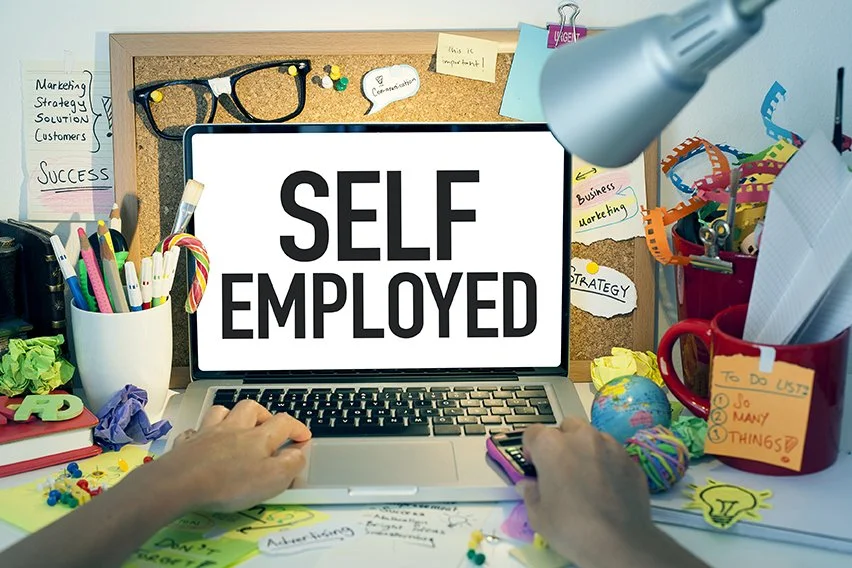Creating a successful career path as a self-employed individual often involves navigating a labyrinth of decisions, from managing finances to finding the right opportunities for growth. The autonomy of self-employment can be exhilarating, yet the absence of a structured support system often leaves many pondering if there’s a better option for self-employed individuals. This article delves into strategies and insights aimed at enhancing the self-employment journey, making it not just sustainable but also more rewarding.
Embracing the Gig Economy with a Strategic Approach
The gig economy has burgeoned, offering a plethora of opportunities for freelancers, consultants, and entrepreneurs. However, the key to thriving in this space lies not in the abundance of gigs but in selecting the right ones. Quality over quantity should be the mantra, focusing on projects that not only pay well but also align with your long-term goals and passions. Building a niche expertise can make you the go-to person in your field, allowing you to command higher rates and choose projects that truly excite you.
Financial Management: The Backbone of Self-Employment
One of the most daunting aspects of self-employment is financial instability. Unlike traditional employment, where one expects a fixed paycheck, the self-employed face fluctuating incomes. The solution lies in meticulous financial planning. Creating a budget that accounts for both personal and business expenses is crucial. Additionally, setting aside a portion of income for taxes, retirement, and emergency funds can provide a financial cushion. Tools and apps designed for freelancers can help streamline this process, making it less intimidating.
Investing in Continuous Learning and Development
The landscape of work is continuously evolving, with new tools, technologies, and methodologies emerging. For the self-employed, investing in continuous learning is not optional; it’s a necessity. Whether it’s taking online courses, attending workshops, or participating in industry conferences, staying updated can significantly enhance your marketability. This commitment to learning can open new avenues for growth and diversification.
Networking and Collaboration: Expanding Horizons
Self-employment does not mean working in isolation. Networking is a powerful tool for uncovering new opportunities, learning from peers, and finding potential collaborators. Joining professional associations, participating in online communities, and attending industry events can be invaluable. Collaboration with other professionals can also lead to new ventures, allowing you to offer a broader range of services or tackle larger projects than you could alone.
Prioritizing Health and Well-being
The flexibility of self-employment often blurs the lines between personal and professional life, leading to burnout. Recognizing the importance of health and well-being is essential. This means setting boundaries, such as fixed work hours, and making time for hobbies, exercise, and relaxation. Physical and mental well-being directly impacts productivity and creativity, making it a critical investment for anyone self-employed.
Leveraging Technology for Efficiency
Technology can be a game-changer for the self-employed, automating mundane tasks and streamlining operations. From accounting software and project management tools to digital marketing platforms, there’s a plethora of resources available. By harnessing these technologies, you can free up valuable time to focus on what you do best—be it creating, consulting, or selling.
Exploring Co-working Spaces and Remote Work Opportunities
The rise of co-working spaces and remote work opportunities has revolutionized the concept of a workplace. For self-employed individuals, these options offer the best of both worlds—the flexibility of working independently and the camaraderie and networking opportunities of a traditional office environment. Co-working spaces, in particular, can be hubs of creativity and collaboration, providing a sense of community that many freelancers miss.
Building a Personal Brand
In a crowded marketplace, standing out is crucial. Building a personal brand can help you attract the right clients and projects. This involves not just showcasing your work but also sharing your values, vision, and the unique perspective you bring to your field. Social media, a personal website, and regular content creation (blogs, podcasts, videos) can be powerful tools in building this brand.
Conclusion: The Path to a Better Option for Self-Employed Success
Ultimately, finding a better option for self-employed individuals is about creating a sustainable and fulfilling career path that aligns with one’s skills, passions, and lifestyle preferences. By adopting a strategic approach to opportunities, managing finances wisely, continuously learning, networking, prioritizing well-being, leveraging technology, exploring new work environments, and building a personal brand, self-employed professionals can not only survive but thrive.
The journey of self-employment is inherently personal and varies widely across individuals and industries. Yet, the principles outlined above provide a foundation upon which to build a successful career. It’s a path that requires resilience, adaptability, and a proactive mindset, but for many, it offers the most rewarding way to work and live. The better option for self-employed individuals isn’t a one-size-fits-all solution; it’s a continuous process of growth, learning, and adaptation.






